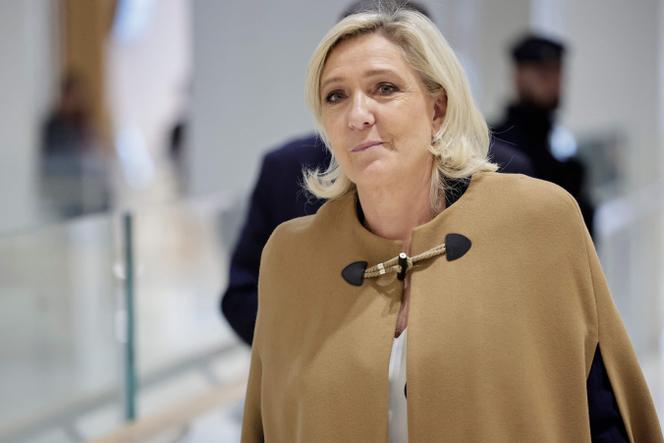


In France, too, political leaders have their eyes firmly fixed on the United States. Emmanuel Macron, as the president in office, has understandably not taken sides. But on the far right, Eric Ciotti and leading figures of Eric Zemmour's Reconquête! party openly proclaim their support for Donald Trump. Marine Le Pen's Rassemblement National (RN), in its quest for political legitimacy, is much more discreet than it was during the 2016 and 2020 elections.
Criticizing "the drift to the left and the ultra-left" of the Democrats, who, in his view, favor "mass irregular immigration" and "terrifying wokism," former president of Les Républicains Ciotti on Tuesday, November 5, suggested that an election of former president Trump "would be more beneficial for the economic and political balances" of the world. "I take responsibility for my position," he argued, in a little dig at Le Pen's party.
In 2016, Le Pen had been a vocal campaigner for Trump, whose anti-system, anti-immigration and protectionist rhetoric echoed that of what was then called the Front National party, now Rassemblement National. And once again in 2020. "If Joe Biden were elected, it would be a real catastrophe," she had claimed, sending a delegation from her party to Trump's last rally.
There has been no endorsement this time. "I'm French, I never give my opinion on foreign elections," RN lawmaker Jean-Philippe Tanguy repeated on French television on Tuesday. Not that the RN hides its preference, but its support is much more allusive. "Donald Trump defends the interest of Americans and defends a form of American pride. And I love this kind of patriotism," said party leader Jordan Bardella last week.
For his part, Jean-Luc Mélenchon, leader of the radical left party La France Insoumise (LFI), announced on Tuesday that if he had to vote, his choice would be between the Green candidate Jill Stein and the Democrat Kamala Harris, depending on whether he lived in a swing state. He called Harris and Trump "similar but not identical." "Both cover up the genocide" in Gaza, "agree on capitalism," "on not taxing super profits" and "for doing nothing on public health," he said.

But, he acknowledged, "there's a fundamental difference" between the two candidates: "Mr. Trump is against the right to voluntary termination of pregnancy" whereas "Ms. Harris defends this idea," noted Mélenchon in a video posted on YouTube.
He clarified that, if he had a vote in a swing state, he would cast his vote for Harris. But, if he lived in a state guaranteed to go to the Democrats, Mélenchon would vote for Stein, whom he describes as being ideologically "close to the 'LFI'," explaining that he is favorable to an end to the two-party system in the US.
